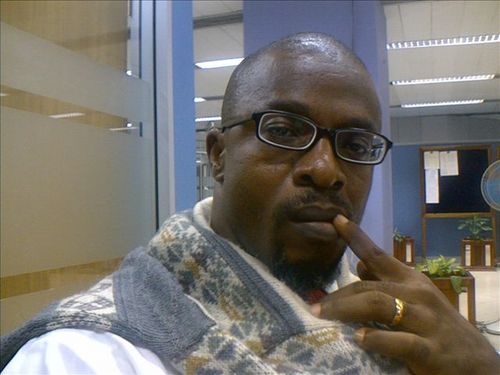
The most unusual contribution (thus far) to the current conversation over the forced internal relocation of mendicants in the country (the recent action by the Lagos State Government has been to the fore and centre of this exchange, but, apparently, other states have done the same thing before) reprises an old argument.
Some 25 years ago, I had this friend (quite prominent, today) who would not give alms, “because acts of charity compromise the objective conditions necessary for a revolution”. The “poor and the vulnerable” should not be dandled if truly we looked forward to a revolution (and, I guess the eventual de-kulakisation of the wealthy) in Nigeria.
In order for the awareness of the poor to make the necessary leap from quantity (the coins in their begging bowls are counted one-by-one, remember) to quality (when count is lost of the extent of the “political repressions, including arrests, deportations, and executions of millions of the bourgeoisie, better-off peasants and their families”), which a revolution requires, they must suffer more.
And where the beggary of the poor is not sufficient, “true revolutionaries” must support programmes (pogroms – which would have been far easier under this mindset – will not do, I suppose, since this will reduce the number of “our” foot soldiers when the revolution commences) that inflict new levels of hardship on them.
History does play strange tricks on us, by going round in a circle. We inflict worse on ourselves, however, by failing to learn anything from these circles and forgetting everything else.
Two centuries ago, a conservative politician declared that “The real grievance of the worker is the insecurity of his existence; he is not sure that he will always have work, he is not sure that he will always be healthy, and he foresees that he will one day be old and unfit to work. If he falls into poverty, even if only through a prolonged illness, he is then completely helpless, left to his own devices, and society does not currently recognize any real obligation towards him beyond the usual help for the poor, even if he has been working all the time ever so faithfully and diligently. The usual help for the poor, however, leaves a lot to be desired, especially in large cities, where it is very much worse than in the country”.
And so, in the 1880s, the Iron Chancellor bequeathed to us, social security legislations anchored on the belief “that the healing of social wrongs must be sought not solely through the repression of social democratic excesses but just as much by positively advancing the well-being of the workers”.
We, on the other hand, only wish to “sharpen the contradiction in the Nigerian society and make the objective conditions for the elusive Nigerian revolution to ripen”. In pursuit of this noble goal, however, the burden on the poor must not be in the nature of torture, inhuman or degrading treatment, slavery or servitude, and/or forced of compulsory labour. Remember, our constitution expressly forbids all of these unspeakable practices.
At this point, I am not too sure whether to roll on the floor, laughing out real loud, or to shake my head in disgust, take a deep breath, pinch my nostrils, and try to live through the stench that our country is becoming.
Indulge in the legal arguments, all you will. But my point remains that the argument for forcibly relocating (internally) beggars are easy to indulge in, today. None of us is a panhandler, yet. But what is to stop this new argument from being applied to any other category of Nigerians? Bankers, for instance? There is clear evidence that their every day job may be militating against the development of those “objective conditions necessary for a revolution”.
Who knows by how much they harm the “subjective conditions”, too? And then, there is the evidence of their deleterious effects on the Nigerian economy! Did you not read the last communique of the Central Bank of Nigeria’s policy-setting committee? It describes vividly how these folks fleece the state, by taking deposits from ministries, departments, and agencies of the state (for a song) and lending it back to government for a king’s ransom!
Should we not also forcibly relocate such people? Before you fall on the floor rolling with laughter on my take on this matter, recall that at Joseph Brodsky’s 1964 trial the judge asked him “Who has recognised you as a poet? Who has enrolled you in the ranks of poets?”
The Soviet State had earlier charged him with “social parasitism”! As we look for innovative ways to address our own social parasites, we are allowed to address the new Nigerian state and its new “judges” in two ways. Either through Joseph Brodsky’s peerless response: “No one! Who enrolled me in the ranks of the human race?” Or in Fela Anikulapo Kuti’s fiercer broadside: “Human rights na my property! Animal can’t dash us human rights”!


